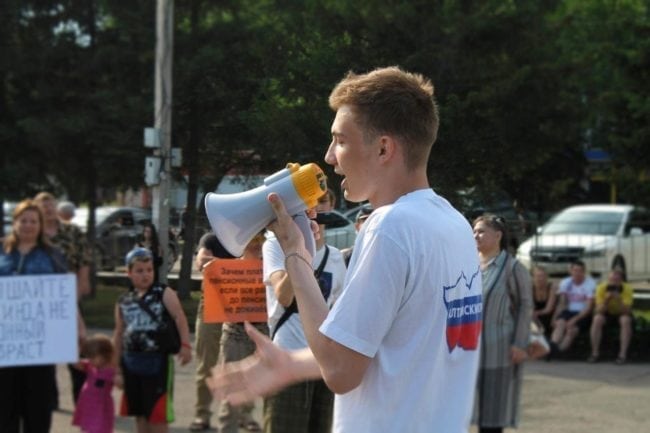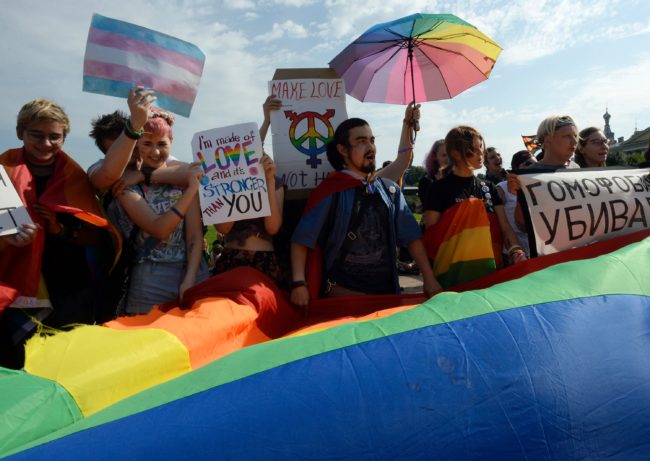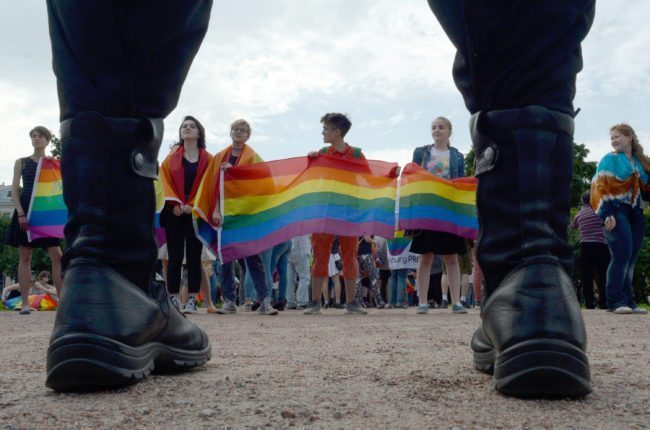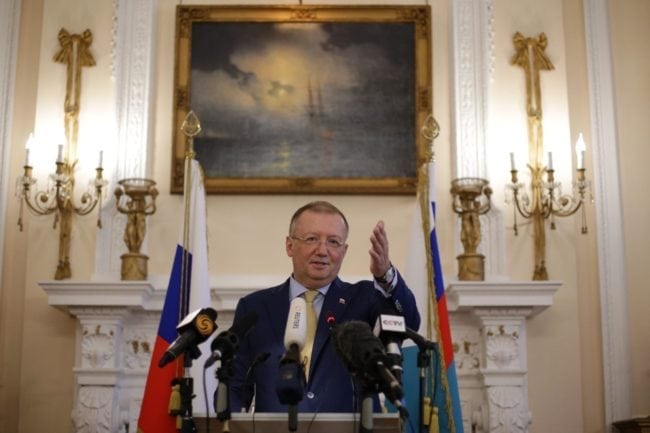Most Russians believe in a secret group which is destroying their values with ‘gay propaganda’

The shadowy group is trying to use ‘gay propaganda’ to destroy the nation’s spiritual values, most Russians agree (Pexels)
A large majority of Russians think an unnamed group is using ‘gay propaganda’ to eradicate their spiritual values, according to state-funded research.
The study by the government-run Russian Public Opinion Research Centre shows that more than three in five – 63 percent – believe in the existence of such a shadowy organisation.
The news comes as Maxim Neverov prepares to appeal his conviction for “promoting non-traditional sexual relationships among minors,” which saw him fined 50,000 rubles (£600).

Maxim Neverov was prosecuted under the country’s anti-gay propaganda law (Russian LGBT Network)
Hate crimes against LGBT people have doubled and attitudes have worsened since Russia created a law banning gay “propaganda” in 2013 – which has since been condemned by the European Court of Human Rights.
The survey highlighted Russians’ apparent readiness to accept conspiracy theories when it came to LGBT+ activists.
When asked whether people who advocate for queer rights in the country might be doing so for purposes other than “destructive goals,” just 24 percent – less than one in four – agreed.

An LGBT pride rally in St Petersburg (OLGA MALTSEVA/AFP/Getty)
More than two-thirds of people aged 35 or over believed in the conspiracy, telling questions askers that yes, they thought there was a group trying to erase national spiritual beliefs through ‘gay propaganda.’
As is often the case, young people were the most progressive, but though more respondents aged 18-24 believed LGBT+ activists’ motives were not destructive, they fell short of a majority, reaching 48 percent.
Two-thirds of Russians also think that there is an unnamed group seeking to rewrite the nation’s history, to “substitute historical facts to harm Russia, to diminish its greatness.”

More than two-thirds of people aged 35 or over believed in the gay conspiracy (OLGA MALTSEVA/AFP/Getty Images)
In August, police detained around 30 LGBT+ activists in St Petersburg.
A total of about 60 campaigners assembled in Palace Square after their request for a pride parade was turned down by local authorities.
The incident appeared to confirm fears voiced by LGBT people in Russia during this summer’s World Cup that the relaxed policing towards the community would end after the competition, which finished on July 15.
Despite the increase in hate crimes in Russia – including the state-led gay purge in Chechnya – authorities have consistently moved to deny any issue with LGBT people.
In June, Alexander Yakovenko, the Russian Ambassador to the UK, denied the persecution of LGBT people in Chechnya – with part of his explanation relying on the face that President Vladimir Putin has met Sir Elton John.

Russian Ambassador Alexander Yakovenko (DANIEL LEAL-OLIVAS/AFP/Getty)
He reportedly said he could not be sure that gay people existed in Chechnya, that Russia is a safe place for LGBT people and that Elton John had met President Putin – so homophobia did not exist in Russia.
He added that if LGBT people didn’t like living in Russia they could move to a different country where there are more LGBT people, which was reminiscent of Chechnya leader Ramzan Kadyrov’s comments last July, when he said: “We don’t have any gays. If there are any, take them to Canada.”

